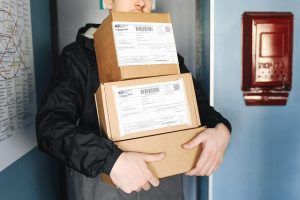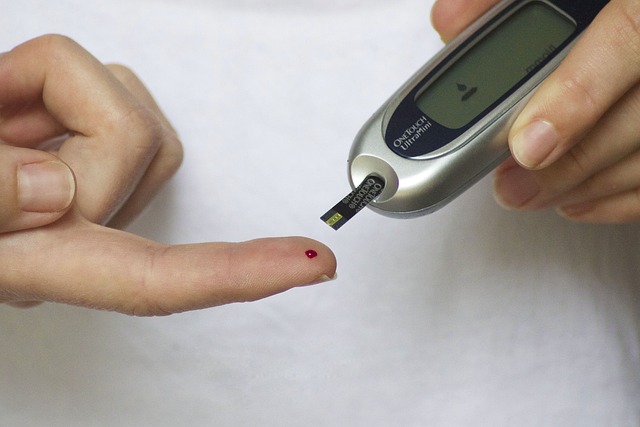By Retailist Team
Recent LegitScript data reveals the skyrocketing promotion of both GLP-1 medications and reported ads associated with selling compounded GLP-1 medications. Leaders in merchant and product certification and monitoring in the advertising, e-commerce, and payment sectors, LegitScript’s findings show both a rapid rise in demand for Healthcare Certification by businesses offering compounded GLP-1 drugs, as well as a sharp increase in problematic GLP-1 products being peddled online that are violating laws across jurisdictions worldwide and potentially endangering unsuspecting consumers.
Compounded GLP-1 medications are custom-made by specialized pharmacies that take advantage of a special FDA allowance resulting from a severe shortage of the medications. However, the sharp demand for these products and the lack of FDA approval of compounded GLP-1 is raising concerns about the safety, effectiveness, and consistency of these medications, which have grown popular for weight loss.
LegitScript Findings:
- Explosive Ad Growth: LegitScript tracks online activity across major platforms, and our monitoring of online ads has revealed a more than 200% increase in violative or problematic GLP-1-related ads in the first half of 2024 compared to all of 2023, and a roughly 1200% increase compared to all of 2022. More than half a million individual ads referencing GLP-1s were monitored by LegitScript in just the last two months.
- Surge in Certification Applications: In the first six months of 2024, LegitScript has received nearly the same amount (94%) of new healthcare merchant applications received in all of 2023. This follows a strong growth trend as consumer trust and interest in telemedicine increases, with applications increasing by 47% from 2022 to 2023.
- Rapid Rise in Compounding Pharmacies: More than 60% of the providers that have applied for LegitScript Healthcare Merchant Certification focus on weight-loss medication, and of those, 98% offer compounded GLP-1s.
- Impermissible Advertising: LegitScript has found that 83% of problematic ads for GLP-1 medications are being promoted in jurisdictions where advertisements for prescription medicines are not allowed. Additionally, 15% of flagged ads offer the medication entirely without prescription requirements, raising concerns about the authenticity and safety of those drugs.
“Our efforts focus on fostering a trustworthy online environment where consumers can make informed decisions about their health and well-being,” said LegitScript CEO Scott Roth. “By working collaboratively across the ecosystem, we help ensure that consumers have access to safe and effective solutions and medications.”
Warning to Consumers
- Consumers seeking weight-loss solutions online should avoid websites offering GLP-1 medications without a prescription.
- Compounded drugs are not FDA-approved; be wary of any company claiming to have compounded GLP-1 drugs that are FDA-approved. There are also no FDA-approved generic versions of these products.
- Consumers should look on telemedicine websites for the dynamic LegitScript seal, typically located in the footer. This shows that the company has been LegitScript-certified for demonstrating compliance.
- Certified online pharmacies can be verified via LegitScript’s certification database.
- Legitimate pharmacies accept standard payment methods like credit cards; requests for wire transfers, prepaid cards, or cryptocurrency are a warning sign.
“The meteoric rise in the popularity of GLP-1 medications has created a breeding ground for online scams and the sale of unauthorized products,” Roth said. “Our data shows a concerning rise in non-compliant advertising and the sale of these medications without a prescription, putting consumers at a great risk. Consumers should be wary of any online offer for prescription medications that seems too good to be true, and they should always consult with a licensed physician before starting any new medication.”
As the leader in merchant and product certification and monitoring in the advertising, e-commerce, and payment sectors, LegitScript tackles the sale of problematic healthcare products as well as more than 60 other high-risk categories — including counterfeits, weapons, and online gambling — with a multi-pronged approach that employs big data, AI-powered technology, and human expertise. This includes helping major platforms and e-commerce marketplaces remove misleading advertisements and bad actors operating in a variety of industries. LegitScript also protects payment facilitators, ISOs, and acquirers from violative merchants of all types, and works with merchants operating in highly regulated industries to help them ensure compliance and build trust. By working with all key players, LegitScript helps to foster a safer online environment for consumers.
For more information about the sale of GLP-1 medications, see our FAQ.
About LegitScript
LegitScript has been leading the charge for a safer, more transparent internet and payments ecosystem for more than 15 years — combining technology and data with a team of experts skilled in monitoring, certification, and investigations. LegitScript’s broad and deep view across the entire commercial internet provides unique insights from all industries and angles, allowing businesses to evaluate, manage, and mitigate risk. That’s why LegitScript is trusted by the world’s largest internet platforms, payments companies, and regulatory agencies.
Related Articles

Beyond the AI Hype: Why Retailers Are Doubling Down on Real-time Inventory
AI assistants can now take shoppers from search to checkout and breeze right past a merchant’s website. The traditional product discovery and purchasing journey are now happening inside AI channels, and major platforms are all aligning on this new shopping protocol.

How to Manage Your Amazon Seller Account Effectively in 2026?
Learn key strategies for managing your Amazon seller account in 2026, including listing optimization, account health management, inventory control, and advertising.

Transaction-Level Data Is Raising the Bar for Attribution and Accountability
For retailers building or scaling retail media and broader commerce marketing programs, this shift reshapes how audiences should be built and forces a more disciplined approach to transparency and cross-channel accountability.

How Rising Consent Awareness Is Reshaping Customer Experience, Data Quality, and Campaign Performance
It also revealed that another 35% expect to deploy personalized AI recommendations in the next year, as AI moves from pilots into the heart of omnichannel journeys, search and merchandising.


 for the latest news and job opportunities in retail tech
for the latest news and job opportunities in retail tech 